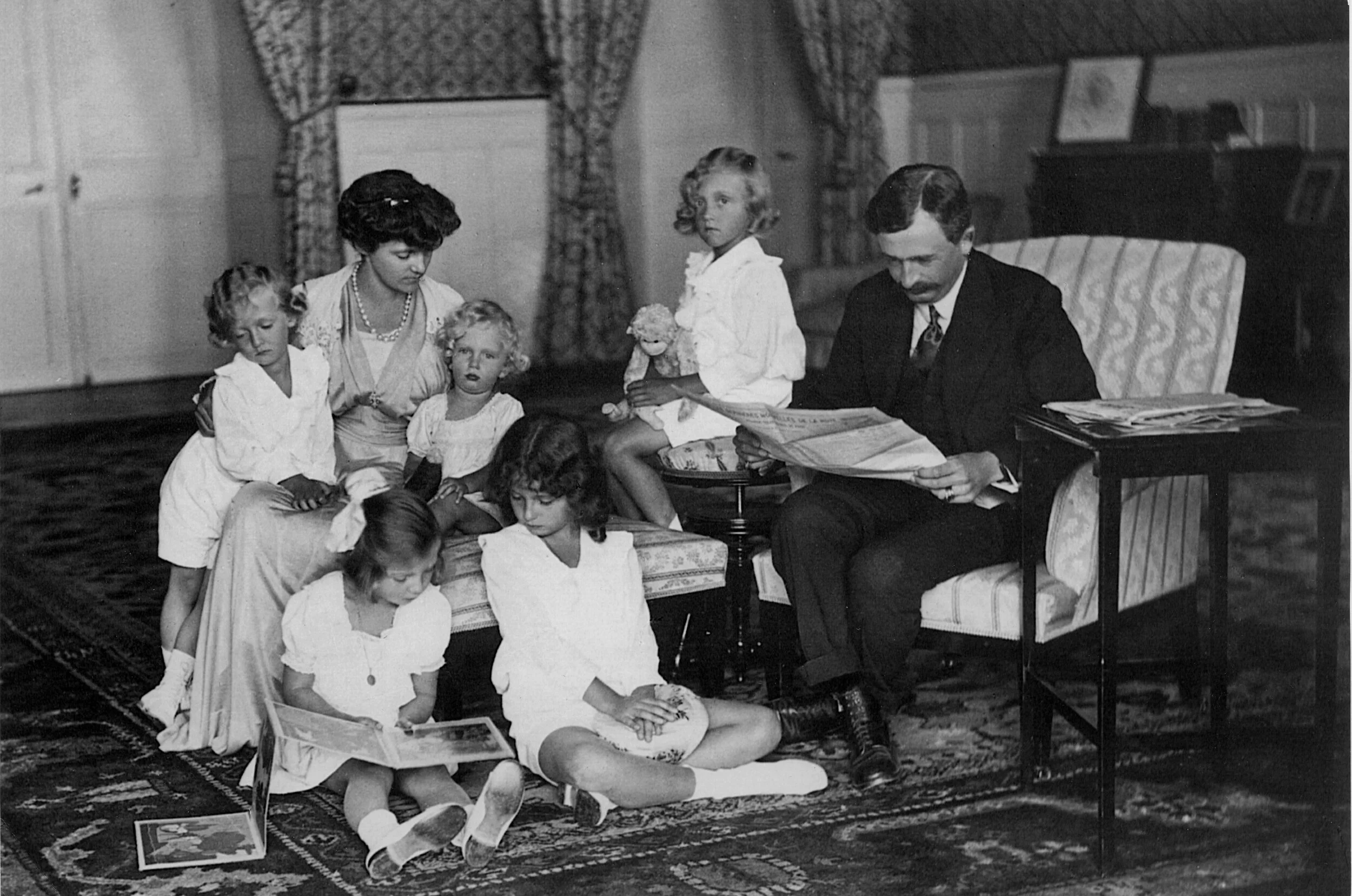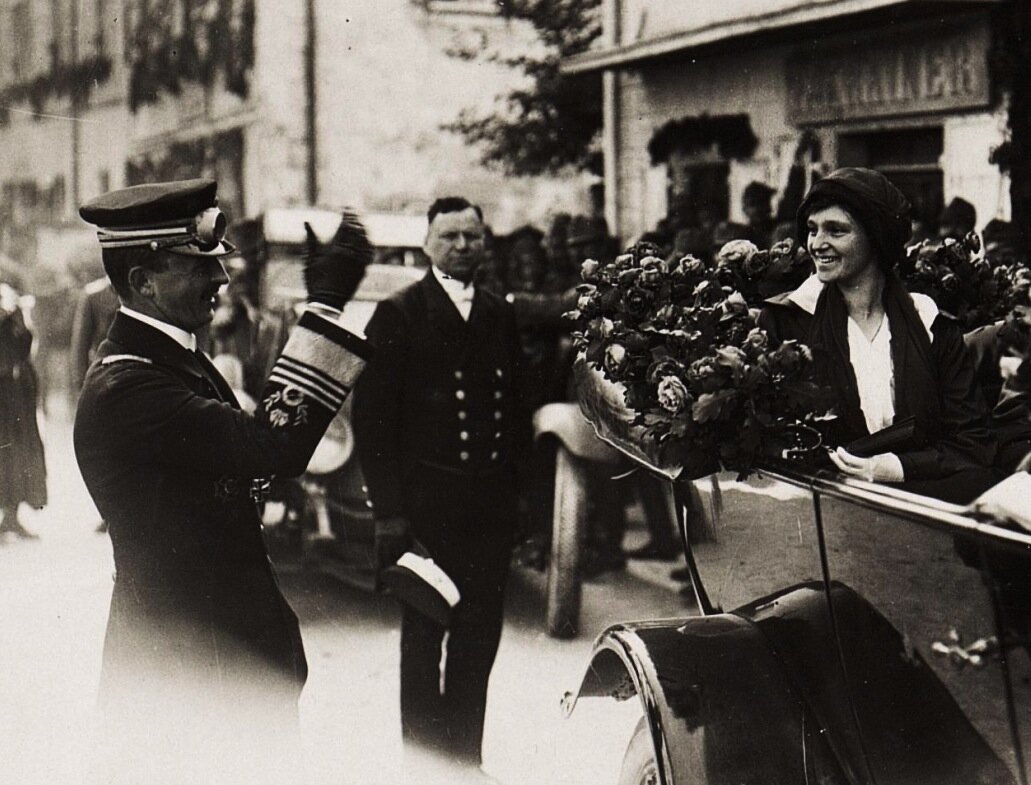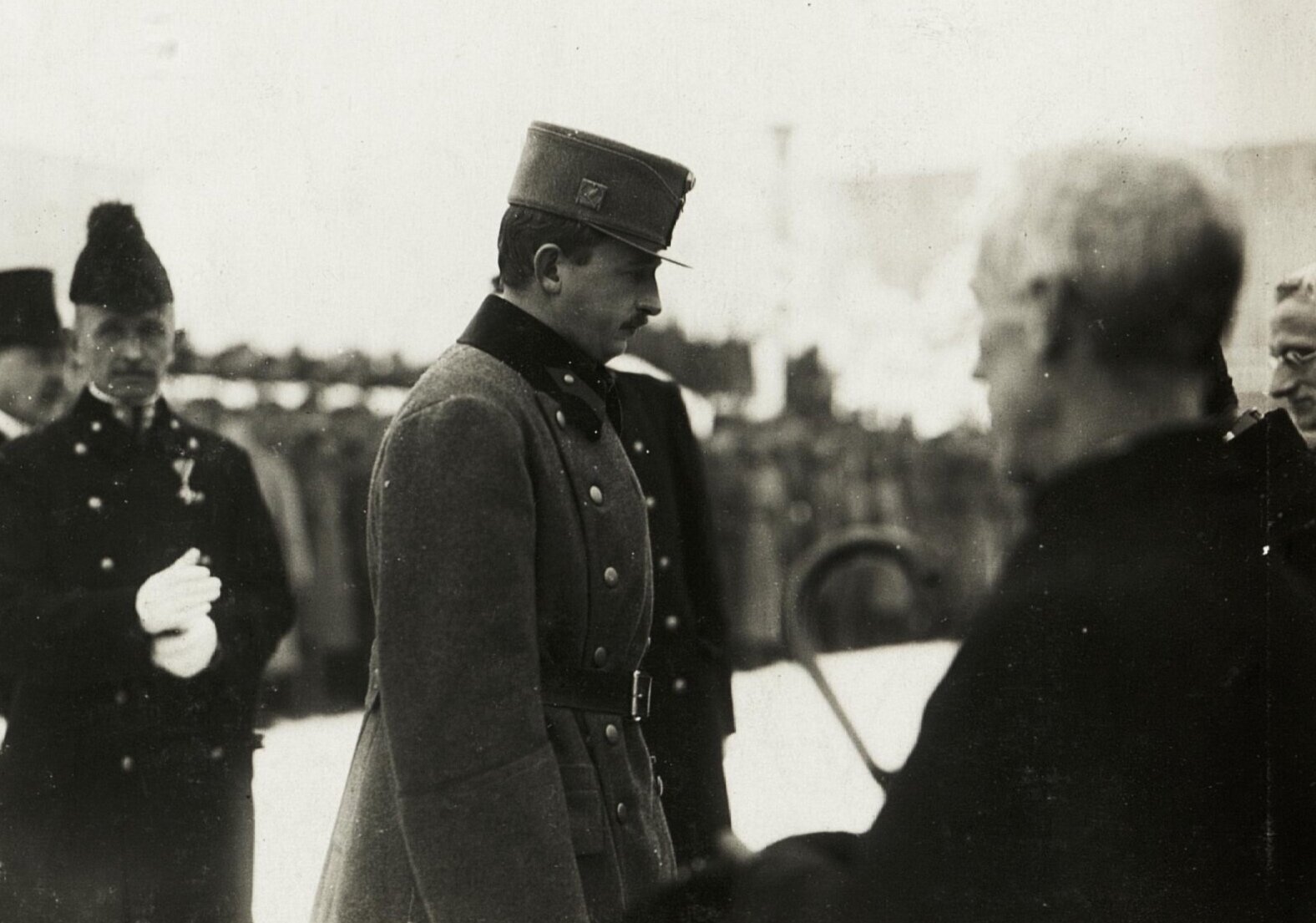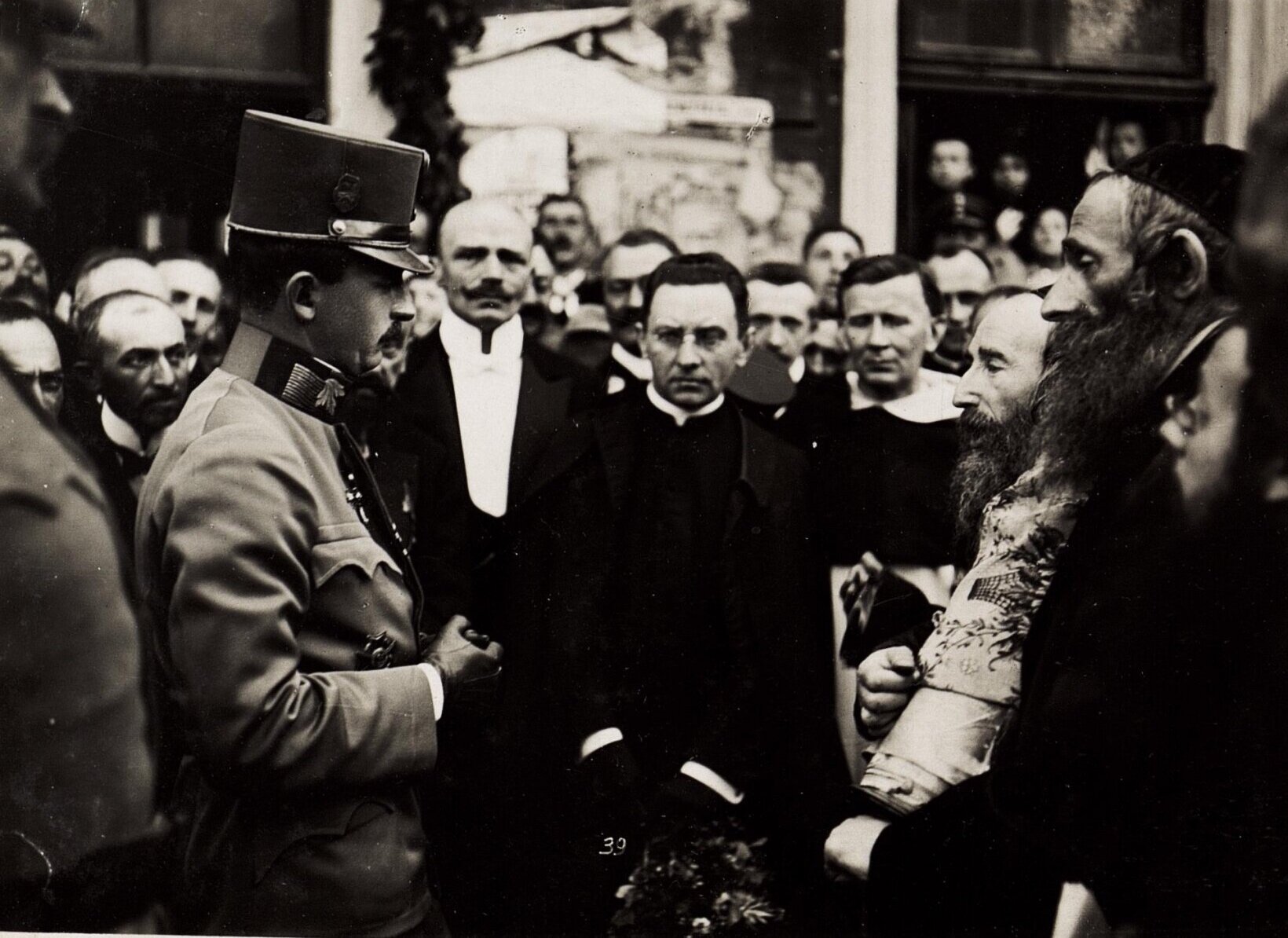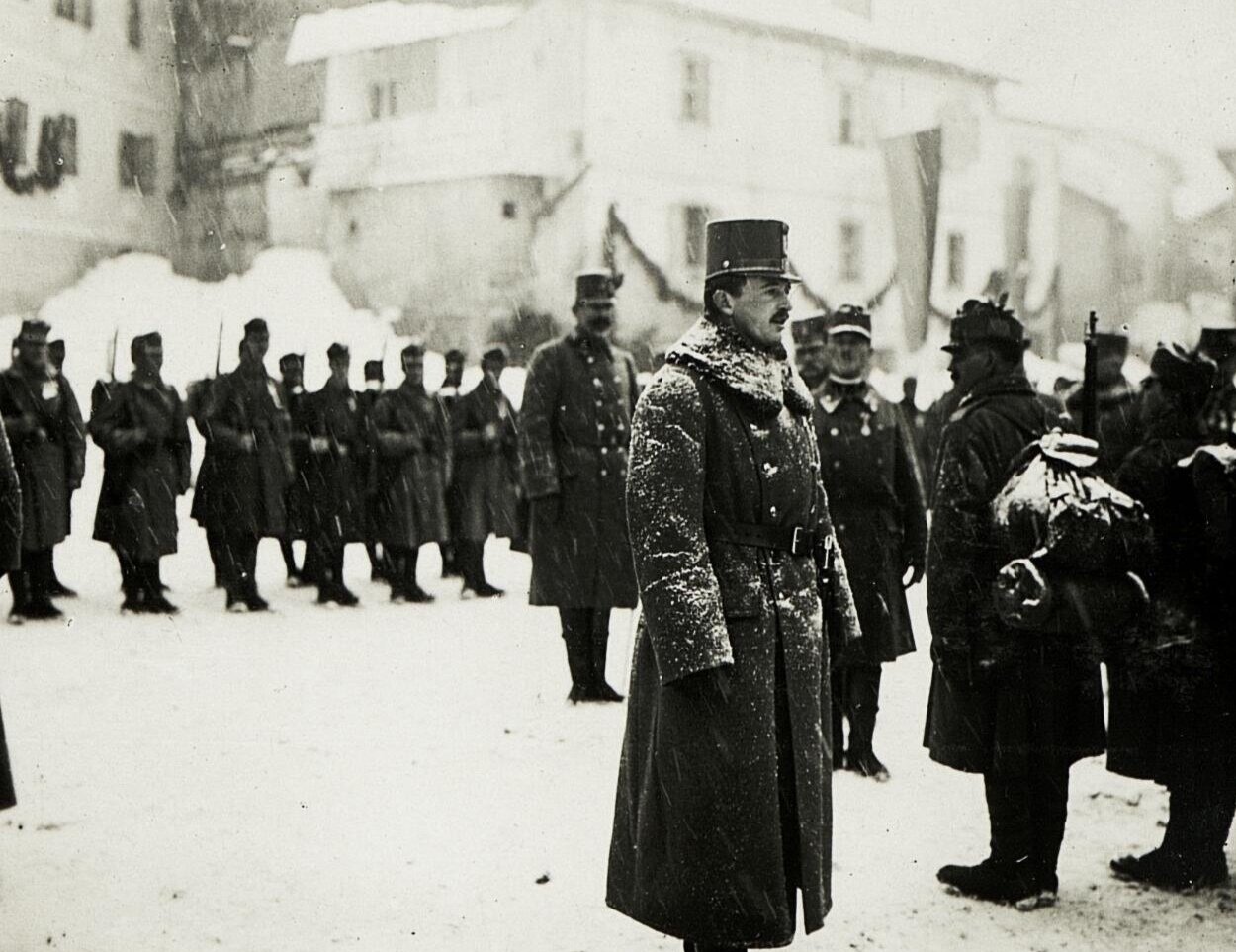Blessed Karl: “Poor in Spirit”
Karl and Zita relaxing with their children while in exile, 1919.
“Blessed are the poor in spirit, for theirs is the kingdom of heaven.” (Matthew 5:3)
Blessed Karl was a king who viewed himself as a servant of his people. He did not view himself as an entitled “royal” or as someone who deserved to be given special treatment. He did not isolate himself from his subjects. Instead, Karl was a self-sacrificing man who recognized his kingship as a form of public service to others. Truly, Blessed Karl was a remarkable example of the heroic attribute Jesus described on the Sermon on the Mount as “poor in spirit.”
Karl went out of his way to meet others around him, no matter who they were, to learn of ways he could help their situation. He treated everyone with kindness. Karl did not surround himself with fashionable celebrities or fans of royalty; he did not cut himself off from common people and shrug off the problems of society around him. Unlike other rulers, Karl personally visited and interacted with ordinary people in his country—no matter who they were, what status they lacked or what religion or ethnicity they belonged to. Karl was humble and interested in improving the lives of others around him. His unpretentious approach became especially apparent during World War I. Karl committed himself to personally interacting with all levels of society during the war in order to address their needs—he appeared in so many places at such short notice that people gave him the nickname, “Karl the Sudden.”
Karl actively practiced charity. Since his youth, he was dedicated to almsgiving and assisting the underprivileged. During World War I, Karl was determined that he and his family should equally share the burdens faced by impoverished Austrian citizens. He denied himself any extra comforts or extra provisions during the war. He gave away his personal belongings, including his clothing, to people in need. Other kings might have demanded more special treatment during this hard time. Not Karl. Even his methods of transportation were simple. While constantly traveling to the frontlines and visiting citizens in far-off places, Karl traveled with his family on ordinary troop transport trains instead of luxury accommodation.
Karl stands as an example of courage and humility to all of us. His openhearted and undemanding behavior, especially during times of hardship and distress, is worthy not only of praise but of imitation in our own lives. Blessed Karl was a living witness of Jesus’s words in Chapter 20 of Matthew’s Gospel: “Whoever wishes to be great among you shall be your servant; whoever wishes to be first among you shall be your slave.” In the same Gospel chapter, Jesus also said the unforgettable words: “The last will be first, and the first will be last.”
Blessed Karl was someone whose title and heritage put him first in the world—yet he freely chose to serve and to put himself last. That is why Blessed Karl is truly a saint for our time.
Zita Ballinger Fletcher is a journalist for CNS (Catholic News Service) who resides in Washington, D.C. She was named after Empress Zita and took the name Karl as her confirmation patron. She is devotee and member of the Emperor Karl League of Prayer for Peace Among Nations.

